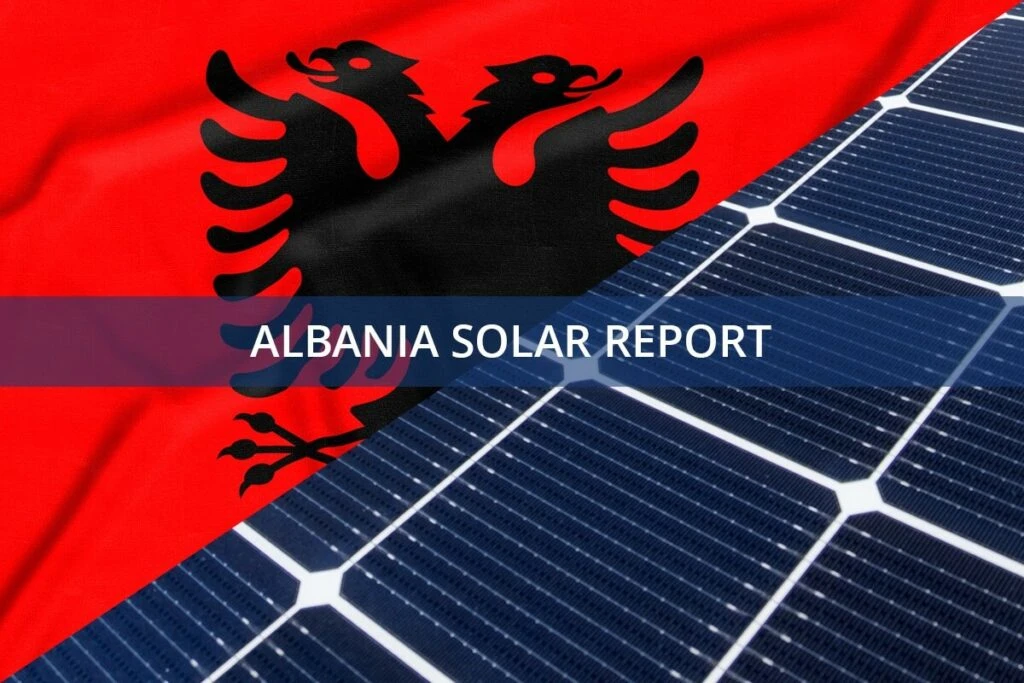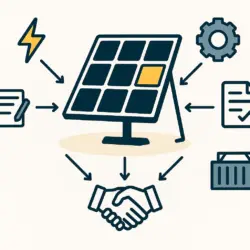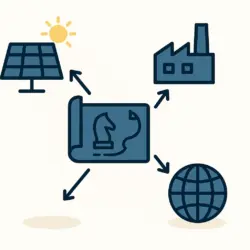Albania is making significant strides in renewable energy, particularly through solar power projects. Here’s a closer look at some of the major solar panel projects and developments in the country as of 2025.
Korça’s Solar Power Plant: Advancing Albania solar projects
In April 2025, Albania’s Ministry of Energy and Infrastructure unveiled plans to construct a 3.3 MW solar power plant on 5.2 hectares of land in Korça. The project, estimated to cost around 2.7 million euros, is set to be completed in 12 months. The Korça solar plant is part of a broader strategy to boost Albania’s renewable energy capacity. The project will power 5,500 streetlights and is designed to operate continuously, even during blackouts. This initiative is a significant step toward achieving energy independence and sustainability in the region.
Spitalla Solar Project: A Key Contributor to Albania solar projects
Another notable development is the Spitalla solar power plant in Durrës, which was successfully connected to the grid in 2025. This solar park is part of a broader strategy to diversify energy sources and reduce reliance on hydropower. The Spitalla project, along with other new solar power plants, marks a significant shift in Albania’s energy landscape. The country’s first solar park, the 140 MW Karavasta plant, began operations in 2024. These solar projects are expected to add 240 MW of capacity, significantly enhancing the country’s renewable energy portfolio.
Voltalia’s New Energy Projects and Albania solar projects
The French renewable energy company Voltalia has announced plans to build new energy projects in Albania, including the Karavasta and Spitalla solar parks. These projects represent a major investment in Albania’s renewable energy future. The Karavasta solar park is one of the largest in the region and is expected to provide a significant boost to the country’s energy production capacity. The Spitalla solar park, although smaller, is another important addition to Albania’s growing renewable energy infrastructure. Both projects reflect Voltalia’s commitment to expanding its presence in Albania and supporting the country’s transition to a more sustainable energy system.
Albania’s Renewable Energy Goals: The Role of Albania solar projects
These solar panel projects are part of Albania’s broader renewable energy goals. The country has set ambitious targets to increase its renewable energy capacity and reduce greenhouse gas emissions. Solar energy is a key component of this strategy, providing a reliable and sustainable source of power. The development of these solar power plants is expected to contribute significantly to Albania’s energy security and economic growth. By reducing the country’s dependence on imported energy, these projects will help stabilize energy prices and create new jobs in the renewable energy sector. Furthermore, starting in 2026, new buildings and major renovations in Albania must meet zero-emission standards and utilize renewable energy sources, particularly solar, as highlighted in this guide to solar panel factory permits in Albania.
Challenges and Opportunities for Albania solar projects
While the future of solar energy in Albania looks promising, there are still challenges to overcome. The country’s energy infrastructure needs to be upgraded to accommodate the growing capacity of renewable energy sources. Additionally, further investments in research and development are needed to ensure the continued growth of the solar energy sector. Despite these challenges, the potential for solar energy in Albania is immense. The country’s abundant sunlight and favorable geographic conditions make it an ideal location for solar power projects. With continued investments and support from both the government and private sector, Albania is well on its way to becoming a leader in renewable energy production in the Balkans. Investors should also consider the risks and rewards associated with investing in Albania’s solar manufacturing sector.
Overall Impact of Albania solar projects
The ongoing development of solar panel projects in Albania is a testament to the country’s commitment to renewable energy. These projects not only contribute to Albania’s energy security but also play a crucial role in reducing carbon emissions and combating climate change. As Albania continues to invest in solar power, it sets an example for other countries in the region to follow. The success of these projects will likely encourage further investments in renewable energy, paving the way for a more sustainable and environmentally friendly future for Albania and the Balkans as a whole.



